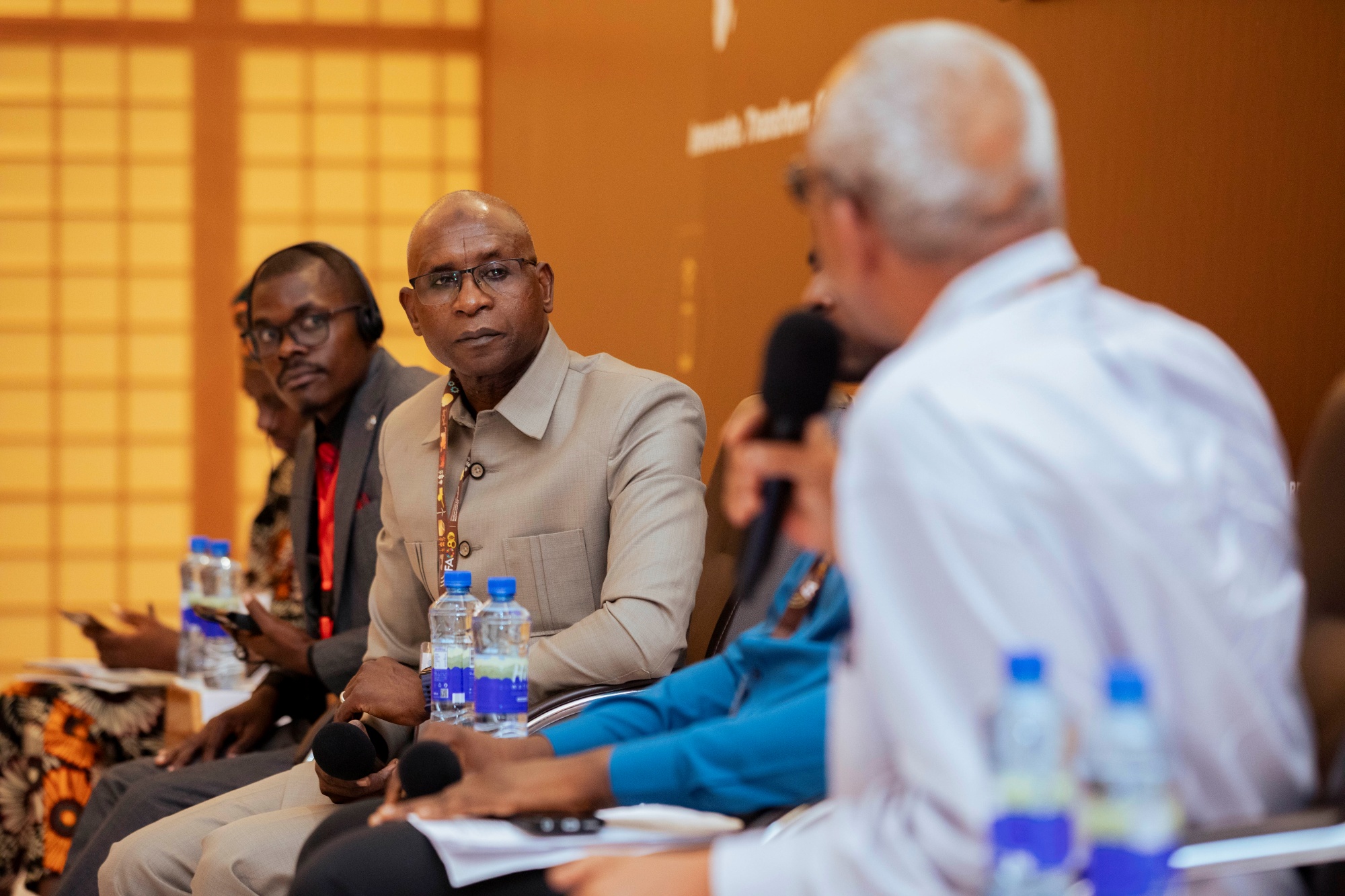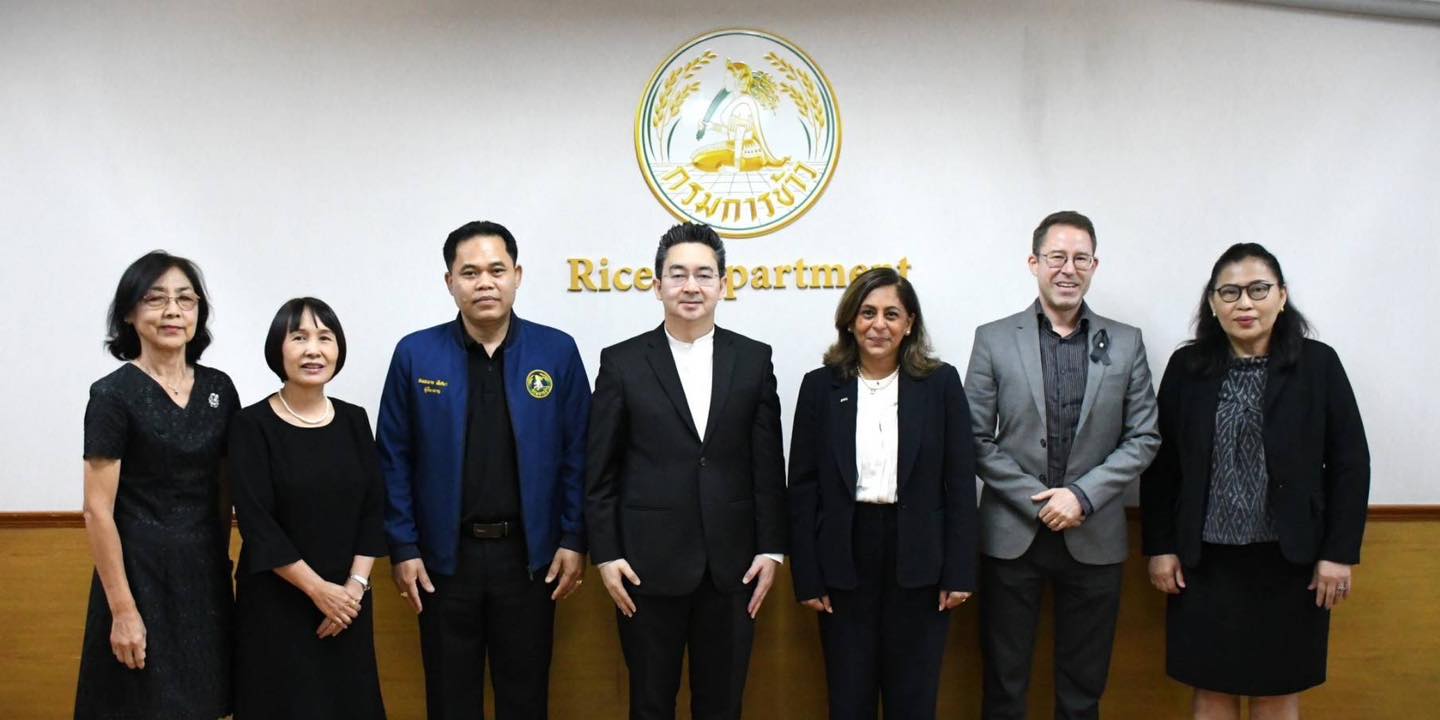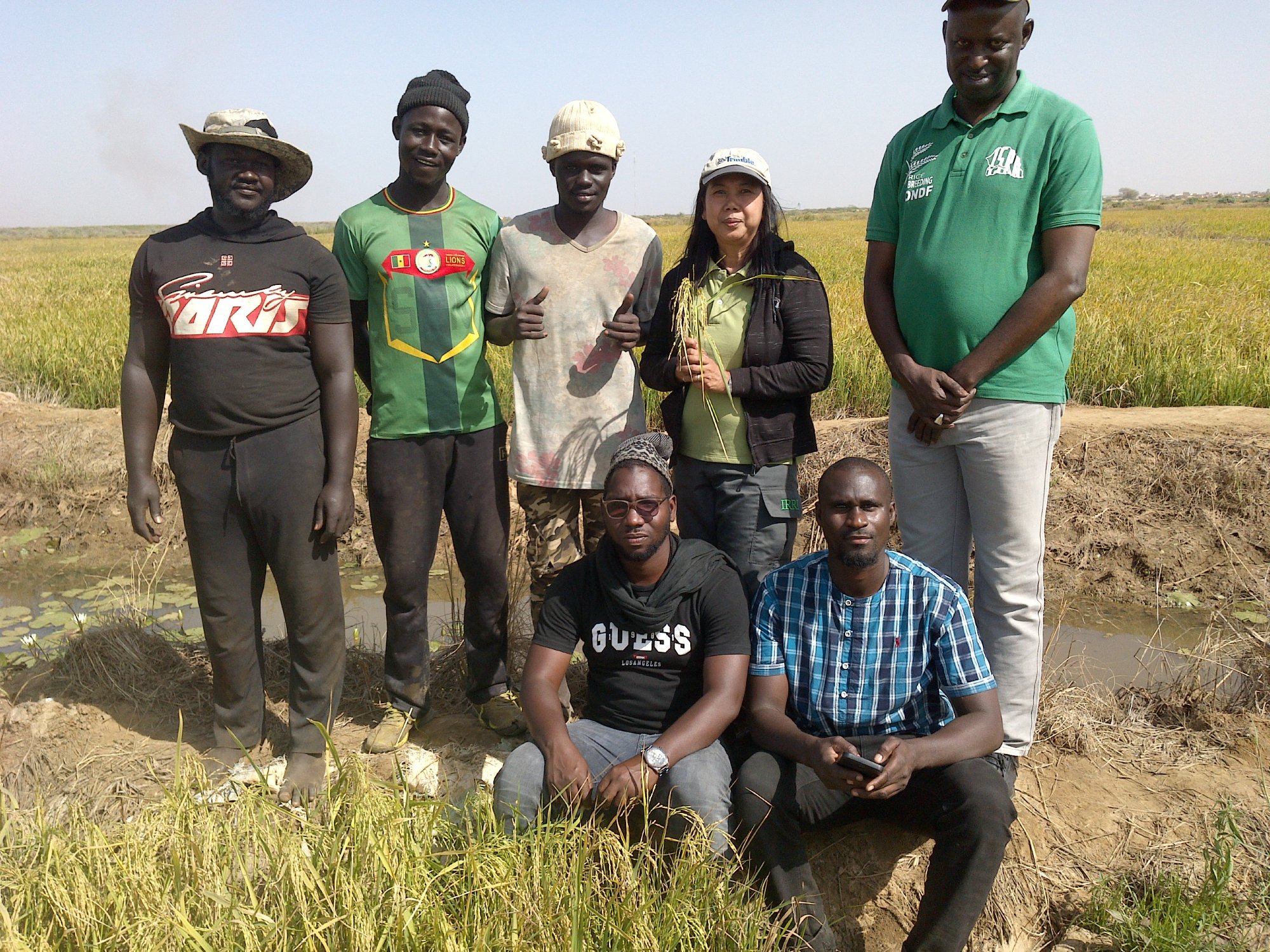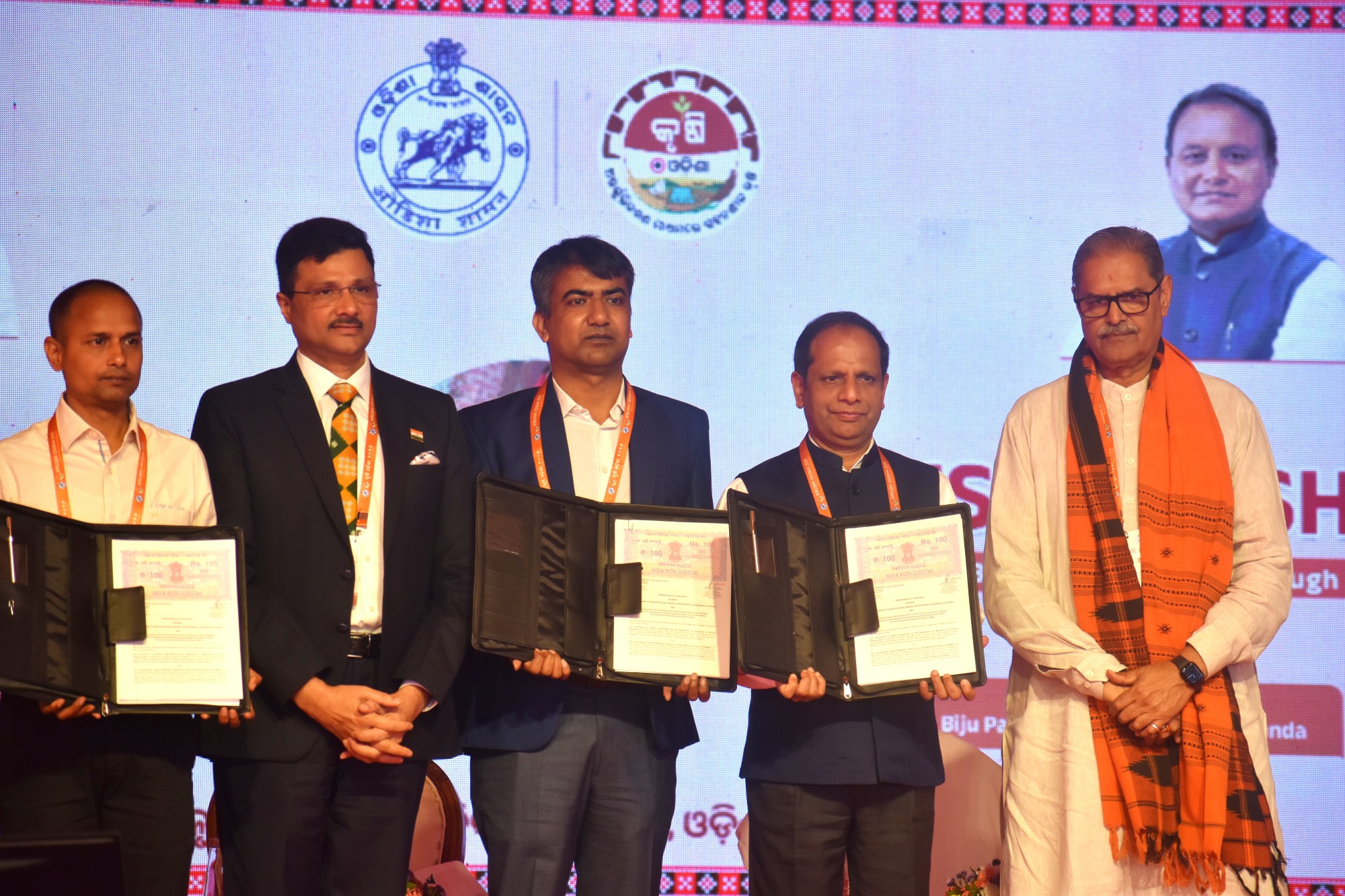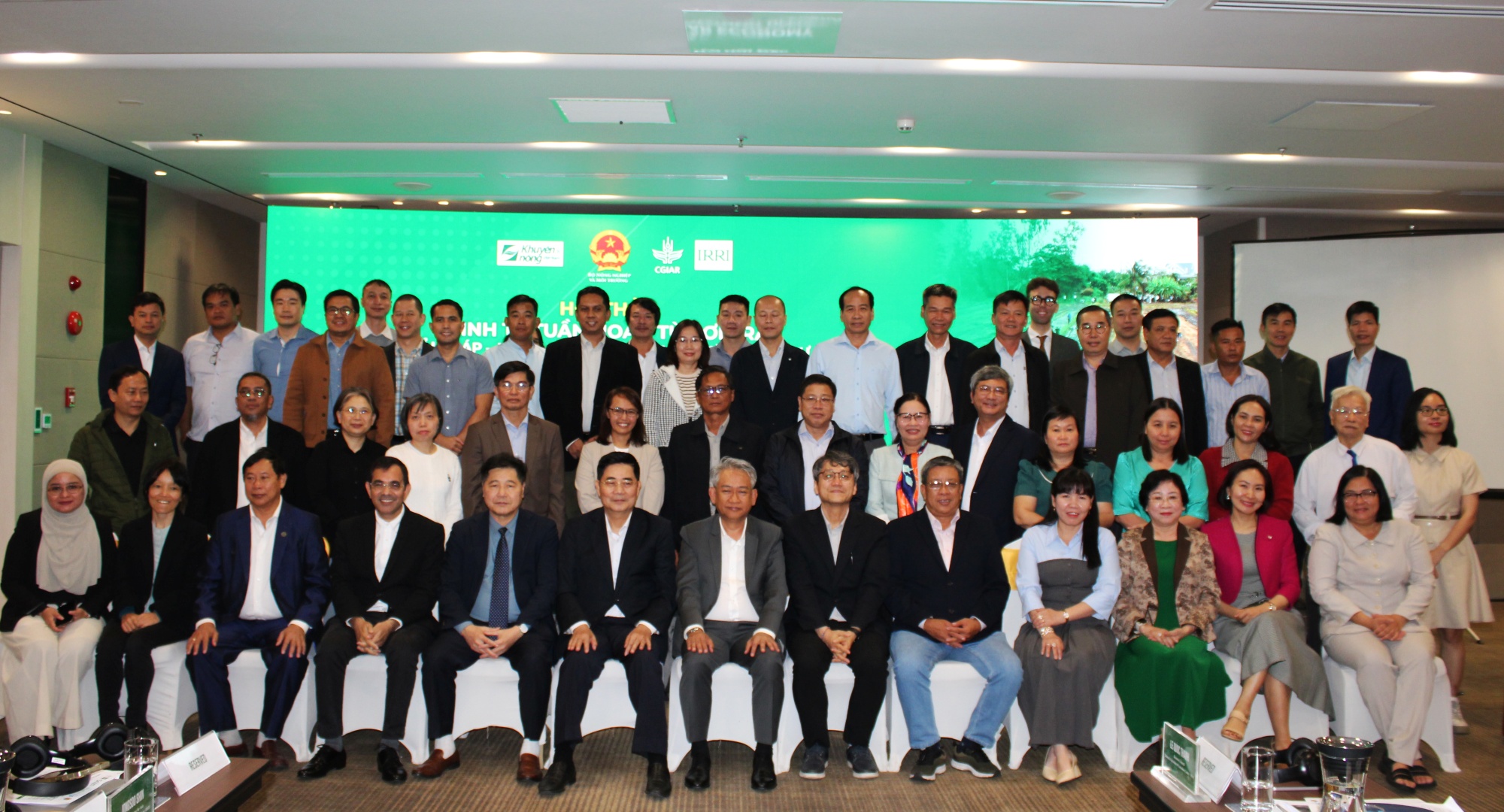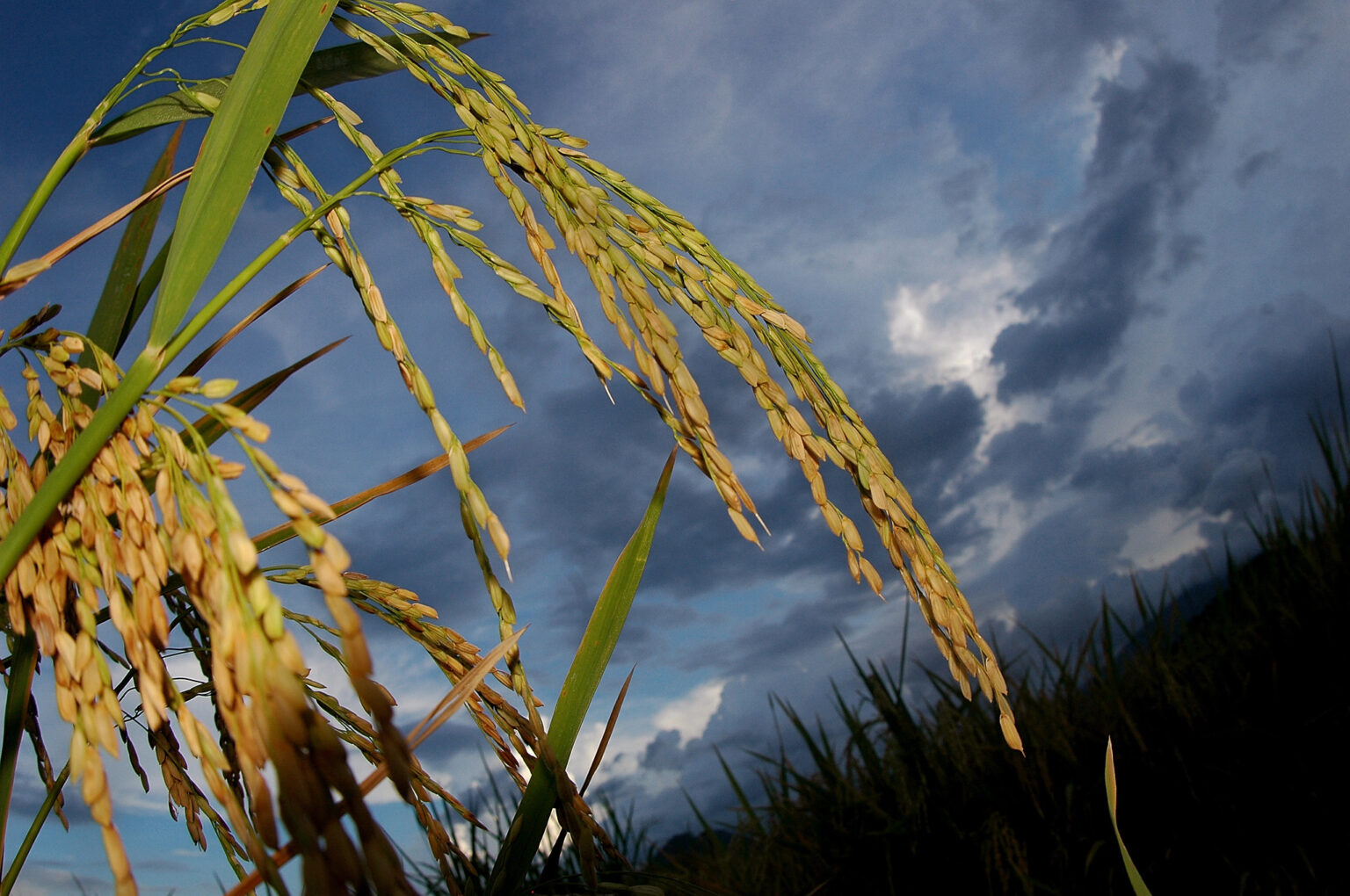Overview
For decades, breeders have focused on traditional breeding to develop improved rice varieties. While this has brought significant advancements, it takes years before a variety is available for release. By then, farming conditions and market demands may have already been changed. In a rapidly evolving environment impacted by climate change, traditional breeding alone is no longer sufficient to meet the growing demand for improved rice varieties.
To address this, IRRI's Rice Breeding Innovations (RBI) has modernized its breeding strategy by incorporating cutting-edge technologies and tools. This approach enables breeders to enhance the genetic improvement rate of rice while reducing its breeding time. Key technologies and strategies include Rapid Generation Advancement (RGA) to accelerate rice variety development; Marker-Assisted Selection (MAS) and genomic selection to identify and incorporate desirable genes into the new rice variety; and gene editing to improve yield, disease resistance, and adaptability to tough conditions.
Beyond boosting productivity, RBI develops biofortified varieties to improve rice nutrition. Breeders apply genetic modifications that follow strict safety regulations throughout the process. Through this, RBI can enrich rice with essential nutrients like iron, zinc, and beta carotene which help combat issues relating to malnutrition.
As a result, smallholder farmers in vulnerable rice-growing areas will have access to improved rice varieties that increase their yields and income. Consumers and other end users, in turn, will also benefit from better nutrition, improved taste, and higher grain quality.
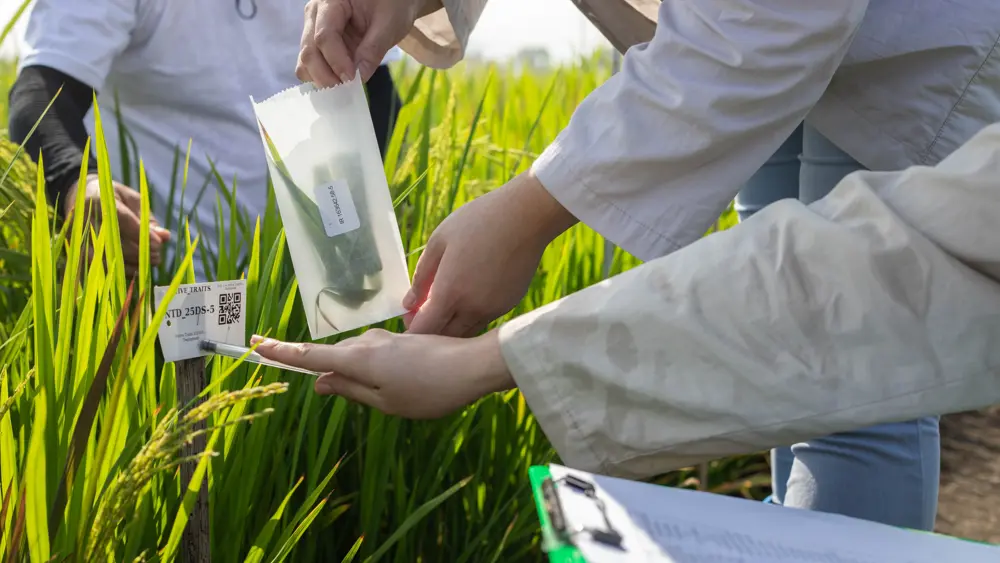
RBI Research Units
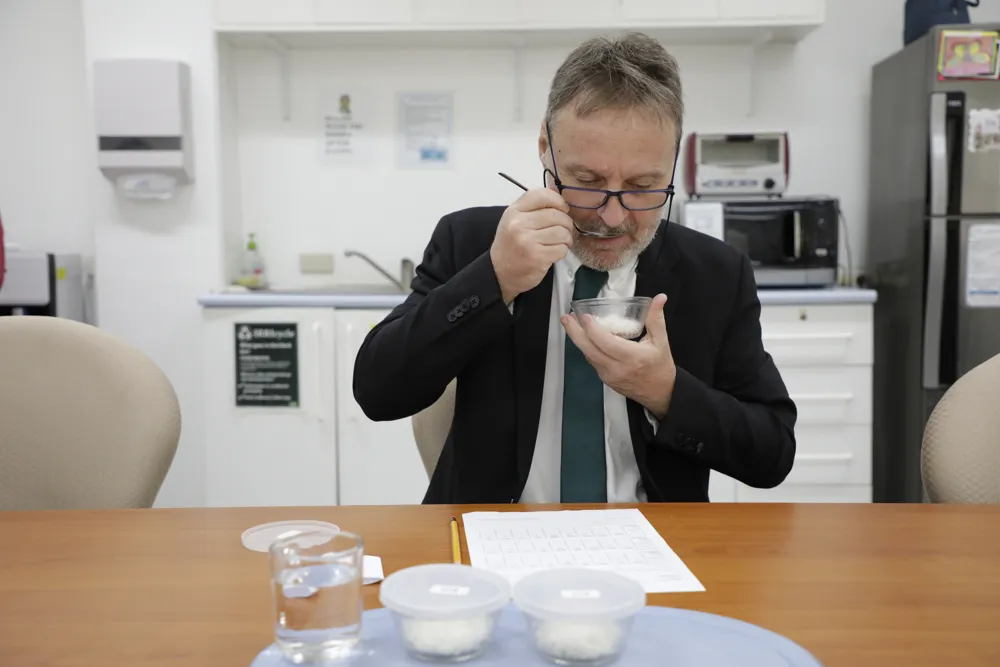
Product Development and Varietal Replacement (PDVR)
The breeding program develops high-yielding climate-resilient rice varieties for both transplanted and direct-seeded systems. It enhances stress tolerance and grain quality to increase market prices, benefit farmers and improve consumer quality.
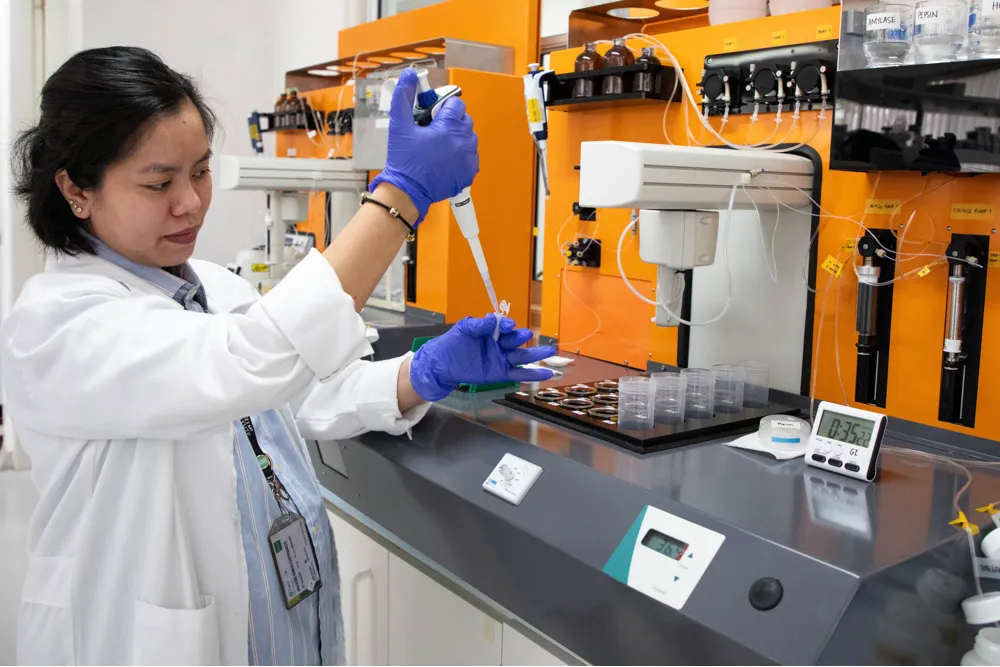
Consumer-Driven Grain Quality and Nutrition Center
The Center conducts research to improve rice quality and nutrition, screening approximately 40,000 rice varieties annually. It focuses on key traits that influence texture, aroma, and nutrient content to develop rice varieties that meet consumer preferences and market demands.
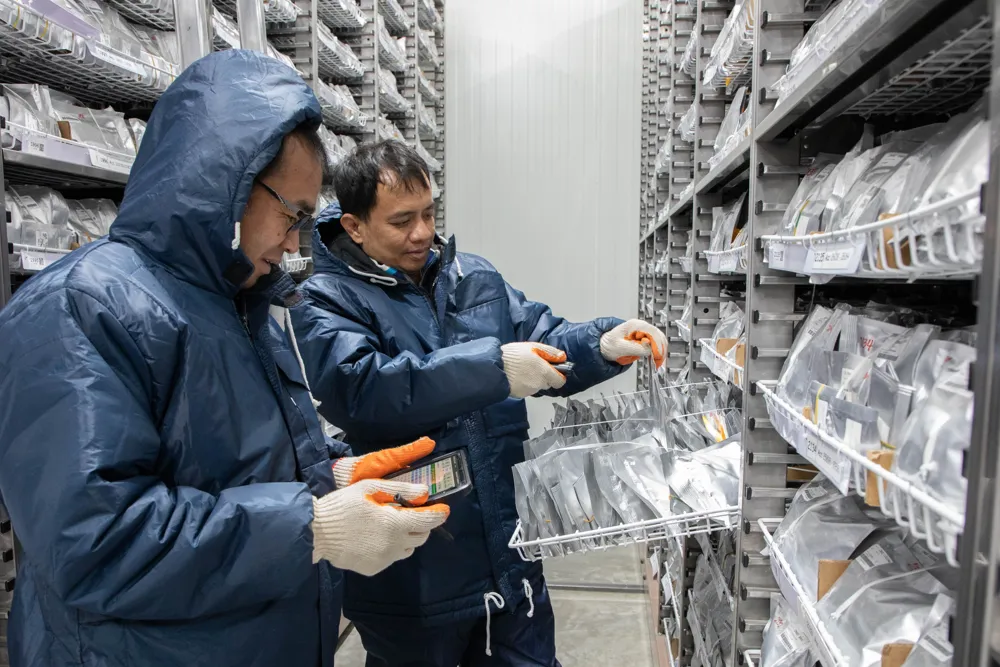
Fit-for-Future Genetic Resources (FFGR)
This initiative conserves rice genetic diversity and germplasm to drive advancements in breeding. Managed under this initiative, the International Rice Genebank enables breeders to develop high yielding, climate-resilient, and nutrient-rich rice varieties.
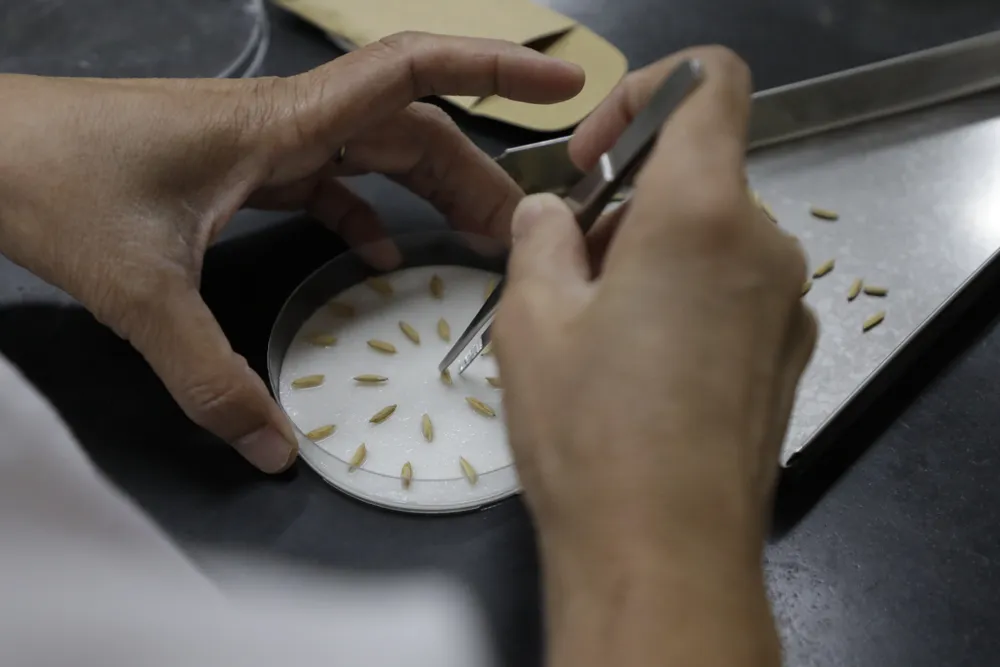
Seed Health and Logistics Unit
(SHU)
This unit facilitates the safe and compliant exchange of seeds and biological materials for research. It manages genetic resource movement by conducting health testing, enforcing quarantine protocols, and upholding international standards.
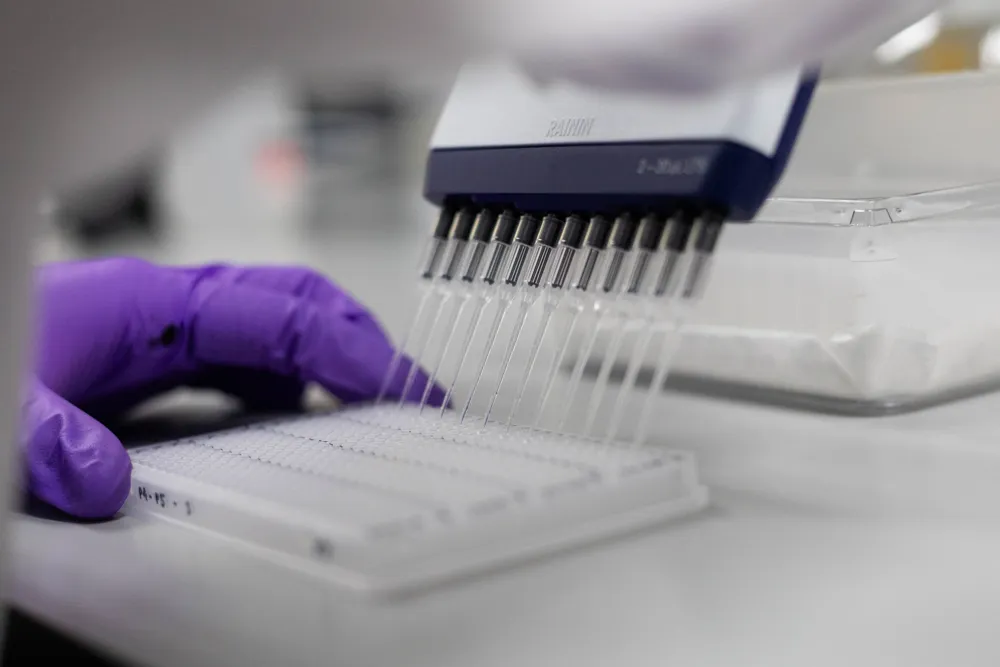
Rice Genetic Design and Validation
This unit uses genome editing and transgenics to improve rice breeding efficiency. It supports the faster development of high-yielding, resilient, and nutrient-rich varieties through targeted regulatory processes, regional capacity-building, and strategic partnerships.
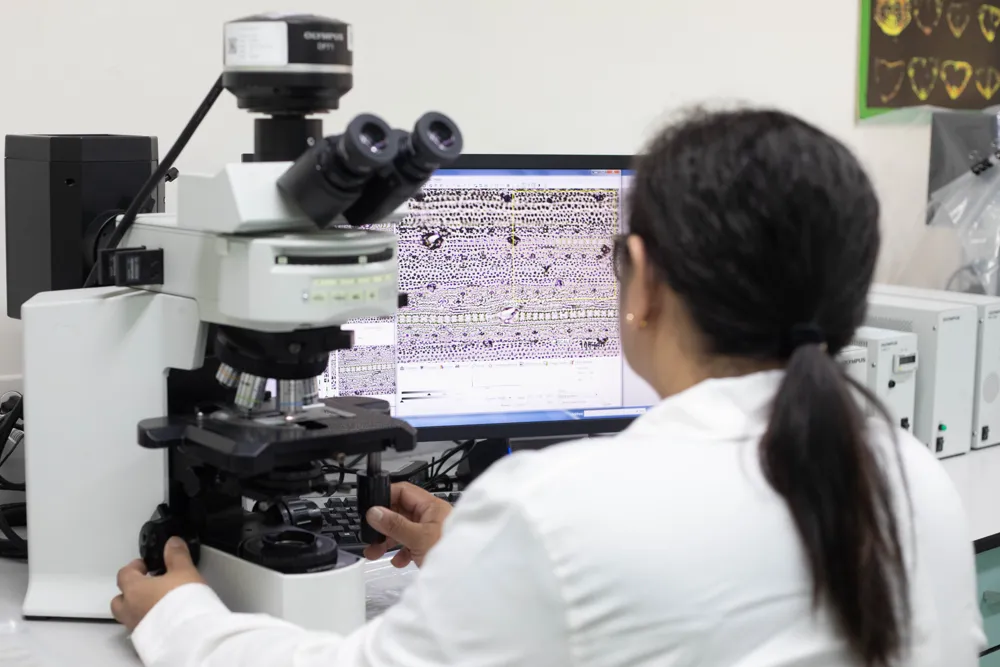
Breeding Analytics, Data Management, Software Development
This unit enhances breeding efficiency by leveraging advanced statistical analysis, robust data management, advanced data systems, and tailored software solutions. Specifically, it supports breeding programs through optimizing selection process, accelerating crop improvement, data driven decision-making and automating data analysis.
RBI Director

Dr. Michael Quinn
Research Director
Dr. Michael Quinn brings to IRRI a wealth of global experience in crop improvement, innovation systems, research management, and has worked extensively with both hybrid and fixed-line crops. As IRRI’s new Research Director for Rice Breeding Innovations, he will lead efforts to integrate cutting-edge science and systems innovations to strengthen the impact and reach of rice breeding across Asia, Africa, and beyond. Prior to joining IRRI, Dr. Quinn served as Director for Breeding Innovation and Modernization at the International Maize and Wheat Improvement Center (CIMMYT), another CGIAR center, where he led the modernization of CGIAR and NARES breeding programs, across 22 crops and eight CGIAR centers, through the CGIAR Accelerated Breeding Initiative (ABI) and the CGIAR Excellence in Breeding (EiB) Platform. His leadership in these capacities has tackled all aspects of breeding including setting objectives, partnership models, innovation management and breeding methods which enhanced CGIAR’s collective capacity to deliver improved crop varieties more efficiently and at scale.

